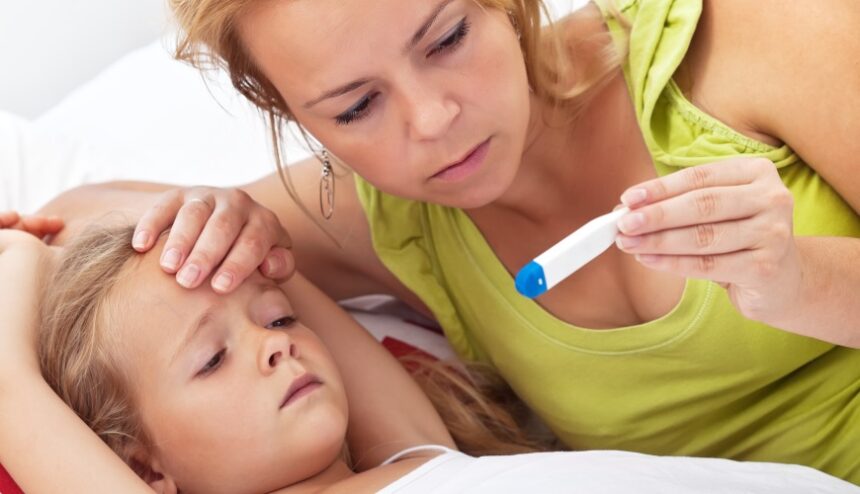 By Tim Montag, PA-C, Walk-In Clinic
By Tim Montag, PA-C, Walk-In Clinic
When should you be concerned about a fever? Have you heard, “Feed a cold and starve a fever?” Or “Pile on blankets so they sweat it out.” We’ve heard of many old remedies when it comes to caring for someone with a fever, but they aren’t based on the solid information found in today’s medicine.
Treatment and care for a fever differs between adults, children, and babies. While an adult may not need treatment for a low-grade fever (between 100.4 o –102.2 o Fahrenheit), a fever that high is considered serious for a tiny infant.
Infant Fevers
Infants under 28 days old may need to be hospitalized with a low-grade fever—it could be caused by a serious infection. Close monitoring, testing, and treatment in the hospital will determine if intravenous (IV) medication is needed. IV treatment also helps to keep their tiny bodies from becoming dehydrated.
A “febrile” seizure may occur if a baby/child has a fever higher than 100.4o. While febrile seizures occur mainly between 12 and 18 months, any fever seizure in a child six months to five years is considered “febrile.” They are caused by an abnormal discharge of nerve cells in the brain, and the child can lose consciousness or shake or jerk the arms and legs. While febrile seizures may run in families, two-thirds of children who have a febrile seizure never have a second one.
Child Fevers
As with infants, children’s fevers need to be closely monitored. An adult can give the child a children’s over-the-counter (OTC) medication (acetaminophen or ibuprofen) to reduce a fever. (Never give aspirin to a child—it could cause Reye’s syndrome, which is rare but could be fatal.) If the dose doesn’t bring down the fever, call your doctor and don’t give a second dose. An underlying infection could cause a fever, so a visit to your doctor might be needed.
Adult Fevers
Generally, your doctor may not suggest treatment for low-grade fevers in adults. A minor fever may help reduce the germs causing the illness. Acetaminophen or ibuprofen can be used if the fever is high or if a low fever makes the person uncomfortable.
As with any medication:
- Use according to the label or recommended by your doctor
- Don’t take too much (high doses of OTC medication could damage the liver or kidneys)
Home Treatment for Low-grade Fevers
To treat a fever, drink liquids to stay hydrated and get plenty of rest. Keep cooler by dressing in light-weight clothing, with only a sheet or light blanket for bedding. Be sure you have a good thermometer to get an accurate reading to monitor at home or report to the doctor.
If a fever persists, spikes higher, or is concerning, don’t hesitate to call your doctor. If necessary, visit a walk-in or urgent care clinic, an Emergency Department, or call 9-1-1 if the fever is severe.


